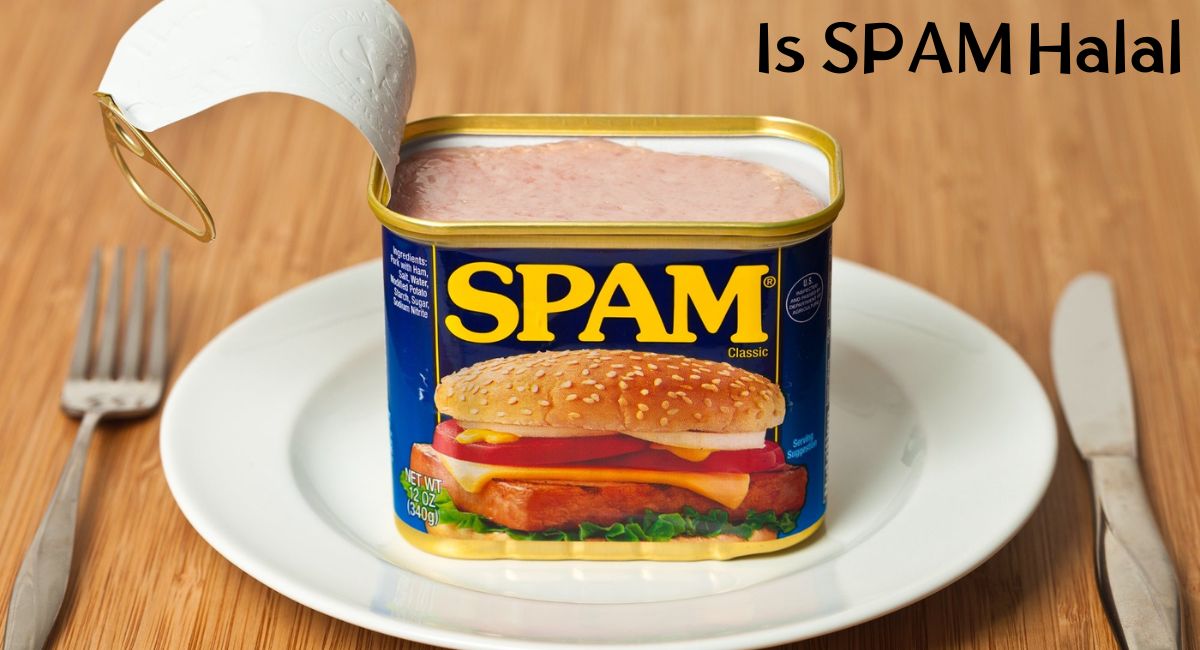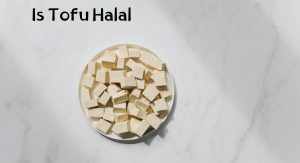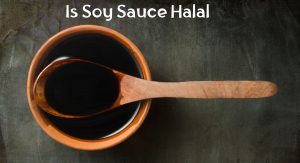Spam, a popular canned meat product, was first introduced by the Hormel Foods Corporation in 1937. It gained significant popularity during World War II due to its long shelf life, affordability, and high protein content, making it a convenient source of sustenance for soldiers.
Since then, Spam has become an iconic food item in many countries, particularly in the United States, South Korea, and Hawaii.
However, when it comes to determining its halal status, the question becomes more complex.
In the case of Spam, a processed meat product that contains various ingredients, it requires a closer examination to determine if it meets the requirements to be considered halal.
This article explores the key factors and considerations surrounding the halal status of Spam, shedding light on its ingredients, processing methods, and the diverse opinions among Islamic scholars regarding its consumption.
What is Spam?
Spam is a brand of processed canned pork that is made by Hormel Foods Corporation. It was introduced by Hormel in 1937 and gained popularity worldwide, particularly after its extensive use during World War II. The name “Spam” is a portmanteau for “spiced ham” and was coined by a New York actor named Ken Daigneau, whose brother was an executive at Hormel Foods.
Spam is primarily made from ground pork and ham, and it is sold in canned form. It has a distinct salty flavor and is known for its long shelf life. By 2003, Spam was being sold in 41 countries and had been trademarked in over 100 countries.
In the United States, the state with the highest per capita consumption of Spam is Hawaii, where it has become a popular ingredient in various dishes. One notable example is Spam musubi, a snack and lunch food in Hawaii that consists of a slice of grilled Spam on top of a block of rice, wrapped together with nori dried seaweed.
Spam’s popularity extends beyond the United States and Hawaii. It is also considered a luxury item in South Korea and has its origins tied to the country’s wartime history. In Hong Kong, Spam is an iconic ingredient used in various culinary preparations, such as sandwiches, noodles, and eggs.
One thing to keep in mind if you’re thinking about trying Spam is that it’s a high-calorie food, with around 170 calories per serving. It’s also high in fat; One serving contains about 16 grams of fat, including 6 grams of saturated fat. Eating too much Spam can contribute to weight gain and health problems like heart disease, so it’s a good idea to enjoy it in moderation.
If you’re interested in trying Spam, there are a few ways to make it a little healthier. Try grilling or broiling it instead of frying it, and pair it with plenty of vegetables for a balanced meal. You can also try other canned meats like salmon or tuna for a similar source of protein without as much sodium.
Spam Varieties
There are numerous flavors available for Spam, catering to different tastes and preferences. The flavors range from the classic variety to more unique options. Here is an overview of the Spam varieties
- Spam Classic: The original and timeless variety of Spam.
- Spam Lite: A lighter version of Spam with reduced fat and calories.
- Spam Less Sodium: Spam with reduced sodium content.
- Spam Maple: Spam infused with a hint of maple flavor.
- Spam with Real HORMEL® Bacon: Spam combined with authentic HORMEL® bacon for added taste.
- Spam Oven Roasted Turkey: Spam flavored with the delicious essence of oven-roasted turkey.
- Spam Hickory Smoke: Spam with a smoky hickory flavor for a savory twist.
- Spam Hot and Spicy: A fiery and zesty variation of Spam for those who enjoy heat.
- Spam Jalapeño: Spam featuring the bold and tangy taste of jalapeño peppers.
- Spam Teriyaki: Spam seasoned with a delectable teriyaki glaze.
- Spam with Tocino Seasoning: Spam infused with the savory and sweet flavors of tocino, a Filipino-style cured meat.
Ingredients of Spam
Spam, the canned pork product, has been a staple ingredient in households for over eight decades. Its popularity has soared due to its versatility in various global cuisines. Spam’s unique taste and texture come from its six simple ingredients. These ingredients create a distinctive flavor profile that can be used in multiple recipes.
- Pork and ham meat: The combination of these two meats creates the unique flavor profile that we associate with Spam. The meat undergoes a grinding and mixing process before being packaged, giving the product its characteristic texture.
- Salt: Salt is used as a seasoning in Spam to enhance its taste. The right balance of salt is essential in giving Spam it’s addicting flavor. Adding too much salt can overpower the taste of the other ingredients and affect the overall product’s texture.
- Water: Water is added to the mixture of pork and ham meat to create a consistency that is easy to package. The right balance of water is important to maintain the product’s texture and shape.
- Potato starch: Potato starch was added to Spam’s recipe in the 1990s to replace the previously used soy protein concentrate. Potato starch acts as a binder and helps maintain the product’s structure. It also improves its texture by increasing its firmness.
- Sugar: Sugar is included in the recipe to add a touch of sweetness to the flavor of Spam. This ingredient balances out the salt’s flavor and enhances the overall taste profile of the product.
- Sodium nitrite: Sodium nitrite is a food preservative added to Spam to prevent bacterial growth and maintain color. Sodium nitrite is commonly used in processed meats as a preservative. Although it has received criticism in the past, the amount used in Spam is considered safe for human consumption.
These ingredients work together to create the distinctive taste and texture of Spam. The product has a spongy texture similar to sausage patties or bologna and a flavor that can be described as a blend of hot dog and bacon. Its versatility allows it to be used in various recipes and cuisines worldwide.
How Spam is Made
Spam products are made using a relatively simple and conventional process. The production involves several steps to ensure the desired taste, texture, and quality of the product.
- Pre-grinding: Pork and ham are carefully selected and ground to achieve the desired consistency.
- Ingredient Addition: Salt, sugar, and other ingredients, including seasonings and spices, are added to the ground meat mixture.
- Mixing: The ingredients are thoroughly mixed to ensure even distribution of flavors. The mixture is heated to reach the desired temperature for food safety.
- Filling: The mixed spam mixture is transferred to the canning line, where it is filled into metal cans, typically in 12-ounce sizes. Each can is filled with a consistent amount of the product.
- Vacuum-sealing: Lids are applied to the cans using a closing machine that utilizes vacuum-sealing. This process creates an airtight seal, ensuring freshness and quality.
- Cooking: The sealed cans are cooked for approximately three hours. This cooking process ensures that the spam is fully cooked and safe for consumption.
- Cooling: After cooking, the cans are cooled to a safe temperature, preserving the quality of the product.
- Labeling: Labels containing important information such as the product name, branding, nutritional facts, and regulatory details are applied to the cans. These labels provide consumers with necessary information and comply with labeling regulations.
- Casing: The labeled cans are placed in larger containers or packaging, known as casings, for storage and transportation.
- Distribution: The cased cans are then ready for distribution to various retailers and markets, where they are made available for consumers to enjoy.
The production of SPAM® involves grinding and mixing the meat, filling and vacuum-sealing the cans, cooking and cooling, labeling, casing, and finally, distribution. This meticulous process ensures that SPAM® products are consistently made, meeting high standards of taste, quality, and food safety.
Is Spam Halal?
Spam is not Halal because it contains pork, which is strictly forbidden in Islamic dietary laws. They maintain that consuming pork, either in the form of meat or any other derivative, is a serious sin and can lead to spiritual contamination.
He has only forbidden to you dead animals, blood, the flesh of swine, and that which has been
Surah Al-Baqarah (2:173)
dedicated to other than Allah.
The verse states that Allah has forbidden the consumption of certain things, namely dead animals, blood, the flesh of swine, and food that has been dedicated to entities other than Allah. These restrictions form part of Islamic dietary laws, known as halal.
I do not find in what has been revealed to me anything forbidden for anyone who wants to eat unless it is carrion, outpoured blood and the flesh of swine, all of which is unclean; or that which is profane having been slaughtered in a name other than that of Allah.
Surah Al-An’am (6:145)
This verse highlights the permissibility and restrictions on food consumption according to Islamic teachings. It states that, except for specific prohibitions, everything is permissible to eat. The forbidden items include carrion (dead animals), outpoured blood, and the flesh of swine (pork), which are considered impure.
Halal Spam Alternatives – What Is Halal Spam Made Of
Halal Spam alternatives are sought after by individuals who adhere to halal dietary restrictions and are looking for suitable substitutes for the canned meat product. While Spam itself is made from pork and is not considered halal, there are various alternatives available that can provide similar flavors and textures. Here are a few halal Spam alternatives you can consider:
- Turkey or Chicken Luncheon Meat: These are canned meat products made from turkey or chicken and can be used as alternatives to Spam. They offer a similar texture and can be used in various dishes like sandwiches, salads, or fried rice.
- Beef Luncheon Meat: Canned beef luncheon meat can also be a halal alternative to Spam. It provides a meaty flavor and can be used in similar ways as Spam.
- Treet: Treet is a brand of canned luncheon meat made from chicken and beef. It can be used as a halal alternative to Spam and is available in many stores.
- Vegetarian Options: For those looking for non-meat alternatives, grilled portobello mushrooms, roasted red peppers, or hummus can be used as substitutes for Spam in certain recipes.
- Phuture Minced Pork: Phuture Foods is a Malaysian startup that has developed a plant-based pork substitute called Phuture Minced Pork. The product is made from wheat, shiitake mushrooms, and mung beans and is designed to mimic the taste and texture of pork. It is halal-friendly and has a complete amino acid profile.
- OmniPork: OmniPork is a plant-based pork made by OmniFoods. It is made from non-GMO soy, peas, shiitake mushrooms, and rice. The brand has recently launched its products in the United States retail sector, with its vegan pork now available at nearly 200 Whole Foods Markets and 371 Sprouts Farmers Markets across the country.
- unMEAT: Century Pacific is the Philippines’ largest branded food company that has launched a vegan spam through its unMEAT brand, becoming the third company in a month to release a plant-based canned pork. The brand offers two varieties of plant-based luncheon meat, and the vegan spam is made from soybeans, wheat, beets, and coconut oil to provide consumers with a better choice to a local staple but with less sodium, no nitrates, and zero animal cruelty
- A California-based startup has launched the world’s-first meat-free pork substitute. The product is made from soy protein, and enriched with sunflower and coconut oil, and is designed to be sustainable, while still having the appearance, taste, and texture of ground pork. The pre-seasoned product can be used in any recipe or dish that calls for the meat. While it has been designed to meet kosher and halal dietary laws, it has not yet received official certification.
When choosing halal alternatives, it’s important to check the ingredients and ensure that they meet your specific dietary requirements. Additionally, it’s always a good idea to consult with your religious or dietary authority for further guidance on suitable substitutes for halal Spam.
Frequently Asked Questions
1. Is Spam pork or beef?
Spam is predominantly made from pork and not beef. It is important to note that different variations or flavors of Spam may exist, but the primary ingredient in the classic Spam product is pork.
2. What is Korean Spam?
Korean Spam is a canned ham brand that has become a staple of South Korean life. It was introduced to Korea by the US army during the Korean War when food was scarce, and meat was even scarcer. Despite its humble origins, Spam has become a luxury item in South Korea and is considered a gourmet item across Asia. Koreans use Spam in traditional meals, such as budae jjigae, a spicy soup, and rellenong manok, a stuffed chicken dish. In Korea, Spam is available in various flavors, including Classic Spam, Mild Spam, Bacon Spam, and Garlic Spam.
3. Is Korean Spam halal?
No Korean spam is not halal. Spam is typically made from ground pork, water, preservatives, and flavorings. Pork is considered haram (forbidden) in Islam, and consuming pork or its derivatives is not permissible. Therefore, based on this information, spam, including Korean spam, which is made from pork, is not considered halal.
4. Is Turkey Spam halal?
While turkey meat itself is halal, the specific product “Turkey Spam” is not halal due to its pork content. Spam is made from pork, which is considered haram (forbidden) in Islam. In Islam, the consumption of pork and its by-products is not permissible. As Turkey Spam is still derived from pork, it falls under the category of haram food.
5. What does Spam taste like?
Spam is often described as having a salty taste with a flavor similar to ham. It is a cured meat product that offers a combination of saltiness and traditional ham flavor. Some variations of Spam incorporate additional spices, peppers, cheese, curry, or other flavor-enhancing ingredients, resulting in a slightly spicy taste. These added spices contribute to the overall flavor profile of Spam.
6. Is Spam Musubi halal?
The halal status of Spam Musubi can vary depending on the ingredients used. Traditional spam musubi is made with Spam, which is a canned pork product. In Islamic dietary guidelines, pork is considered haram. However, there are adaptations of spam musubi that have been created to cater to halal dietary requirements. These adaptations involve using halal-certified alternatives to pork-based Spam, such as turkey or chicken-based luncheon meat. These alternatives are often referred to as “Sham” or “halal musubi”. These versions of spam musubi are specifically prepared to be pork-free and suitable for halal fine dining.
7. Is vegan spam halal?
Yes, vegan spam is halal because it is a plant-based alternative to traditional meat-based spam. It is made from soybeans, wheat, beets, and coconut oil, and is designed to provide consumers with a healthier and more ethical choice with less sodium and zero animal cruelty. Vegan spam is also available in canned form from brands such as OmniFoods and Century Pacific.








